INDEPTH | SFSA 2018 and Africa’s search for STI-driven development
The South Africa Science Forum 2018 (SFSA 2018) themed: “Igniting conversations about science” focused on the role of Science, Technology and Innovation (STI) in Africa’s growth and development
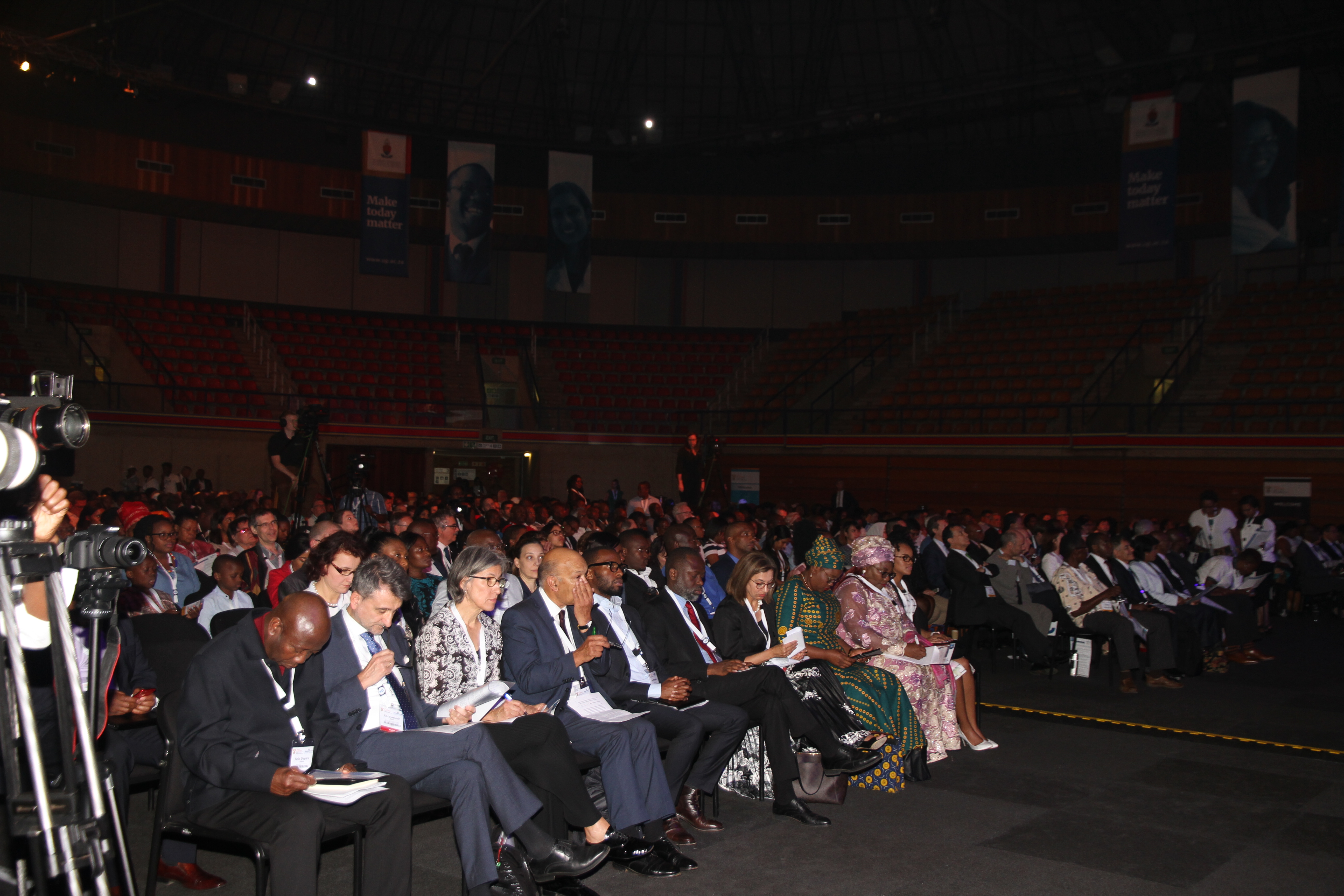
Typical of South Africa’s sunny and temperate interior climate, it was a relatively cool afternoon at the one-hundred-and ten-year-old University of Pretoria’s Hillcrest campus’ Rembrandt Sport Centre, where crème de la crème of Africa’s science ecosystem had gathered for the opening ceremony of the fourth South Africa Science Forum – Africa’s largest and most prestigious science event, themed: “Igniting conversations about science”.
The South Africa Science Forum 2018 (SFSA 2018) which held December 12-14 and which was attended by over 4000 delegates from across 88 countries, featured 94 different plenaries and high-level sessions, whose central agenda was the role of Science, Technology and Innovation (STI) as instruments for Africa’s growth and development, in the context of the continent’s fight against poverty, unemployment and inequality.
Indeed, the opening ceremony of SFSA 2018 was a colossal African fête de la science; the entire Forum was a seamless meeting point between the academia and policymaking for Africa’s science community. Notably, SFSA 2018 was preceded by the 11th General Assembly of the African Academy of Sciences (AAS) held December 10-11. Actually, AAS cohosted the Forum with South Africa’s Department of Science and Technology (DST).
With close to 50:50 male-female ratio among its over 130 international speakers (more than half of which were from African countries) and 20% of which were under 35 years of age, SFSA 2018 was as inclusive as it was diverse. The Forum also had over 70 exhibitors from across the globe that showcased a wide-range of ideas and innovations – from security and surveillance solutions, Artificial Intelligence (AI) and Internet of Things (IoT) technologies, to biotechnological products, driverless technology, and robotics.
Sorena Sattari, Iran’s Vice President for Science and Technology, was special guest at the Forum which also had physically in attendance, African Union Commissioner for Human Resources, Science and Technology (HRST), Sarah Anyang Agbor; Her Royal Highness Sikhanyiso Dlamini, Minister of Information, Communications and Technology (ICT) for the Kingdom of eSwatini; as well as Ms Mmamoloko Kubayi-Ngubane, South Africa’s Minister of Science and Technology, who was also the Forum’s host.
Others were Daya Reddy, President of the International Council of Science (ICS); Flavia Shlegel, UNESCO’s Assistant Director General for Natural Sciences; Felix Dapara Dakora, President of the African Academy of Sciences (AAS); Vladimír Šucha, Director-General of the European Commission’s Joint Research Centre (JRC); Prof. Cheryl de la Rey, Vice Chancellor of the University of Pretoria (host of the opening ceremony) as well as Prof. Tshilidzi Marwala, Vice Chancellor of the University of Johannesburg, who delivered the keynote lecture on Africa and the Fourth Industrial Revolution (FIR).
Marwala, a professor of artificial intelligence, holds a PhD in Artificial Intelligence and Engineering from the University of Cambridge with research interests in the theory and application of artificial intelligence to engineering, computer science, finance, social science and medicine. One of Africa’s leading experts in disruptive technologies, he has to his credit 12 published books on artificial intelligence, over 300 book chapters and papers published in journals and proceedings as well as published op-ed articles in leading publications such as the New Scientist, The Economist and Time.
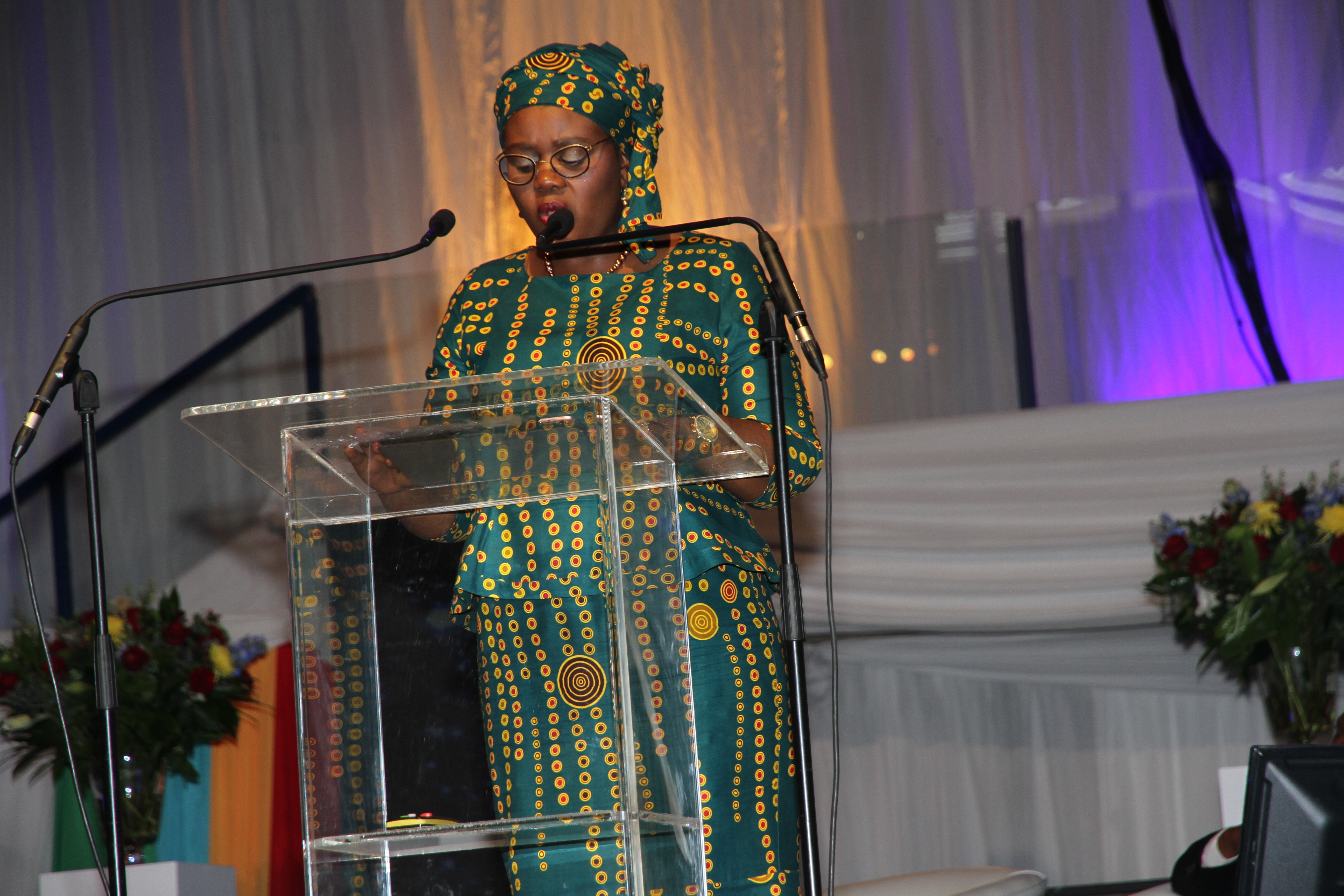
“The Science Forum South Africa is not an objective in its own right,” stated Ms Mmamoloko Kubayi-Ngubane, South Africa’s Minister of Science and Technology, while welcoming delegates to the Forum. “Rather, it is an instrument to contribute to the attainment of several of the strategic objectives of the Department of Science and Technology, and the goals set out in South Africa’s new draft White Paper on science, technology and innovation.”
Kubayi-Ngubane said the goals of the Forum – which had become the birthplace for many viable international partnerships on STI – were, amongst others, providing Africa with an influential platform for debate on the role of science in society, in the spirit of African cooperation and integration in STI as well as promoting international science, technology and innovation partnerships, specifically, profiling South Africa as a preferred international partner for cooperation in science and innovation.
She added that South Africa’s vision for the Forum was also to act as a platform for engagements on the use of STI to advance the African Union’s Agenda 2063 and its subset, the Science, Technology and Innovation Strategy for Africa (STISA-2024), which places Science, Technology and Innovation at the epicenter of Africa’s socio-economic development and growth.
“This is perhaps the most critical task of our Forum – ensuring that discussions here are relevant and address the needs of our most fragile communities. Science for development has become a common rallying cry. The Forum should help us to ensure we formulate concrete action to deal with the six priority areas identified in the AU vision, [STISA-2024] which are the eradication of hunger and achieving food security; the prevention and control of disease; communication (physical and intellectual mobility); the protection of our space; living together and building society; and wealth creation,” listed Ms Kubayi-Ngubane.
Anchored firmly on the six distinct priority areas itemized by Kubayi-Ngubane that contribute to the achievement of the vision of AU, STISA-2024 is the first of the ten-year incremental phasing strategies designed to respond to Africa’s need for science, technology and innovation to impact across critical sectors such as agriculture, energy, environment, health, infrastructure development, mining, security and water. STISA-2024 is part of a broader and long-term AU Agenda 2063 aimed achieving the “Africa We Want”.
“Among other things, we will need to answer questions such as how, with a growing youth population in Africa; we are to ensure that the majority of the youth participate in science, technology and innovation? What concrete steps will we, as Africans, take to ensure that the participation of women in science is in proportion to their percentage of the population?” concluded Minister Kubayi-Ngubane.
Adopted in 2015 by the Heads of State and Government of the AU, Agenda 2063 is a long-term and people-centered framework targeted at “inclusive growth and sustainable development for Africa to be realized in the next fifty years. It is a continuation of the pan-African drive over centuries, for unity, self-determination, freedom, progress and collective prosperity pursued under Pan-Africanism and African Renaissance.’’
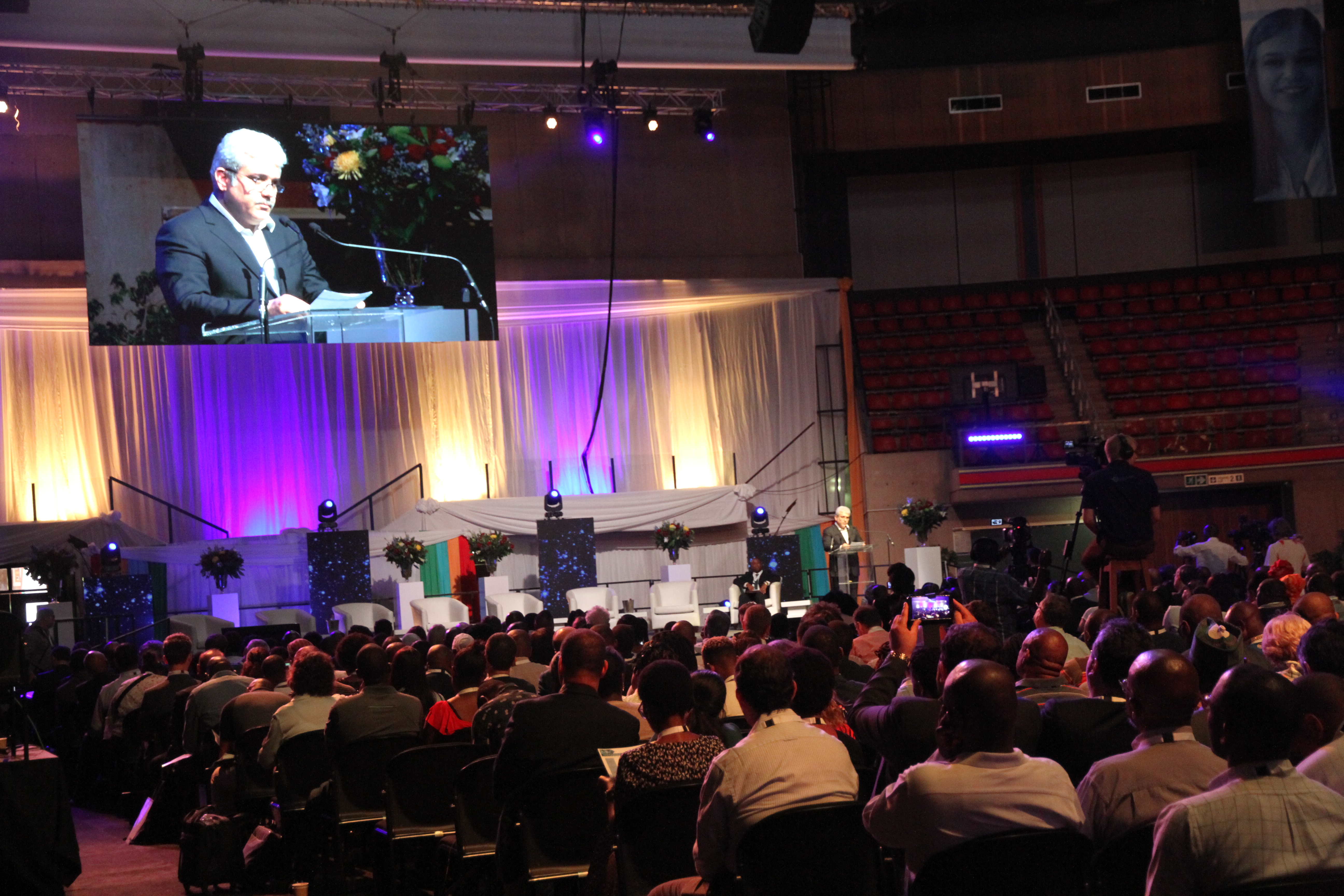
In his remarks, SFSA 2018’s Special Guest cum Islamic Republic of Iran’s Vice President for Science and Technology, Sorena Sattari, said the world was now in challenging times including environmental and social challenges hence the need for countries of the globe to come together towards a common solution for global challenges.
“Developing countries have many untapped, unseen opportunities and capacities. Iran is rich in natural resources; in the last decade, we have turned our focus on human development through science and technology and we have witnessed huge growths in STI. We are optimistic about the future and extending our hand of partnership to South Africa and Africa towards mutual benefits. We want to establish modern joint research and innovation projects and initiatives,” offered Sattari.
While delivering his keynote lecture titled: “Igniting conversations about science: Africa and the Fourth Industrial Revolution,” Prof. Tshilidzi Marwala of the University of Johannesburg said the Fourth Industrial Revolution was characterized by robotics, artificial intelligence, quantum computing, nanotechnology as well as the Internet of Things, and autonomous vehicles, decrying the fact most African countries were still struggling with the First Industrial Revolution.
“The First Industrial Revolution was about knowledge formulation and saw the transition from the use of hand in production to the use of mechanical energy to organize production; however, many African countries are still yet to transit. The Second Industrial Revolution was characterized by knowledge evolution and marked the transition to electrification and mass production; Africa has still not transitioned,” said Marwala with a sense of disappointment.
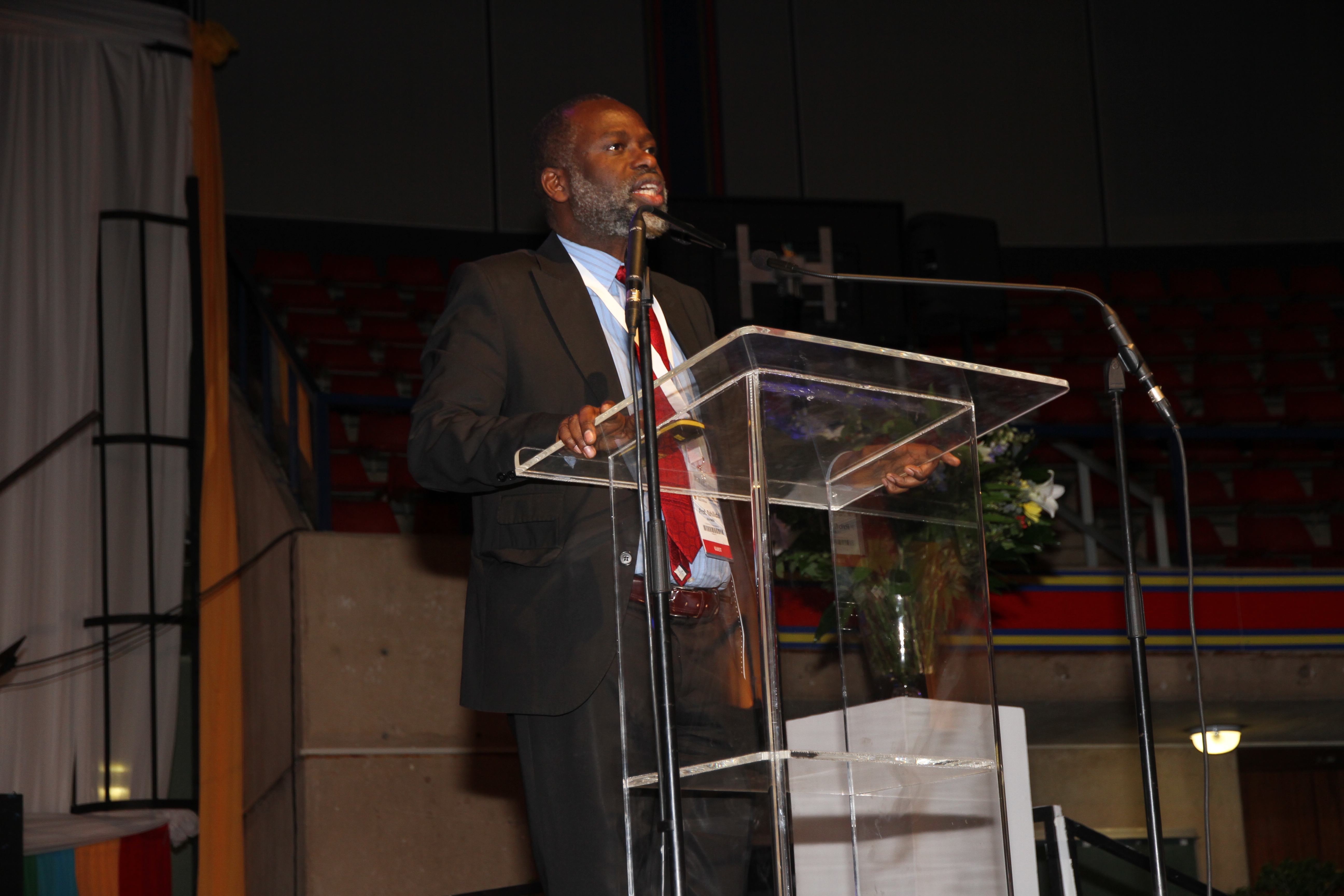
In her speech, the African Union Commissioner for Human Resources, Science and Technology (HRST), Her Excellency Sarah Anyang Agbor, described science, technology and innovation as enablers for inclusive growth and sustainable development, acknowledging that Africa and the world were going through changes on multiple scales; changes she said, were propelled by mutually re-enforcing factors such as demography, terrorism, migration, digital revolution and climate change.
“We must recognize that in the midst of all these changes, present-day globalization with its multiple dimensions, and the effects these have on present-day social, economic and political formations, have made way for further changes of marginalization and inequalities within and between nations. As a result, while an increasingly globalized world is supporting the integration of markets and technology; the effects of this phenomenon paint an image of immense inequalities as poverty and the inability to promote diversified and inclusive development growth persist in Africa,” said Agbor.
She decried the fact that although the wealth of nations of the world had increased, not much had changed in Africa adding that many African countries had still not developed enough to change the industrial geography of the globe, in terms of consumption. “The difference between those who execute, implement is not their age or natural resources. Take Japan for example. It has limited territory, 80% mountains, unsuitable for agriculture or farming yet it’s the second in world economy. Take Switzerland, it does not grow cocoa but produces the best chocolates, and best milk products in the world.”
Agbor, therefore, said the real question was whether or not Africa’s current STI policies and institutions were viable enough to propel it to achieve its desired outcome, cautioning African leaders that: “investments in STI should not be an elitist or casual venture but a high priority pathway that can deliver Africa from poverty and create opportunities for our youths and generations to come.”
“If the time we spend here ends after the conference, then we have spent empty time – empty of the joy that could have come if we implemented these goals and policies for the good of our citizens…True sacrifice true selflessness is what, we demand from the government, leaders and policymakers to make STI a reality. Our science should not only be for publications or having impact on scientific knowledge but it should impact the lives of Africans, Africa needs to stand its ground, and Africa needs you, and I to walk the talk,” admonished Agbor.
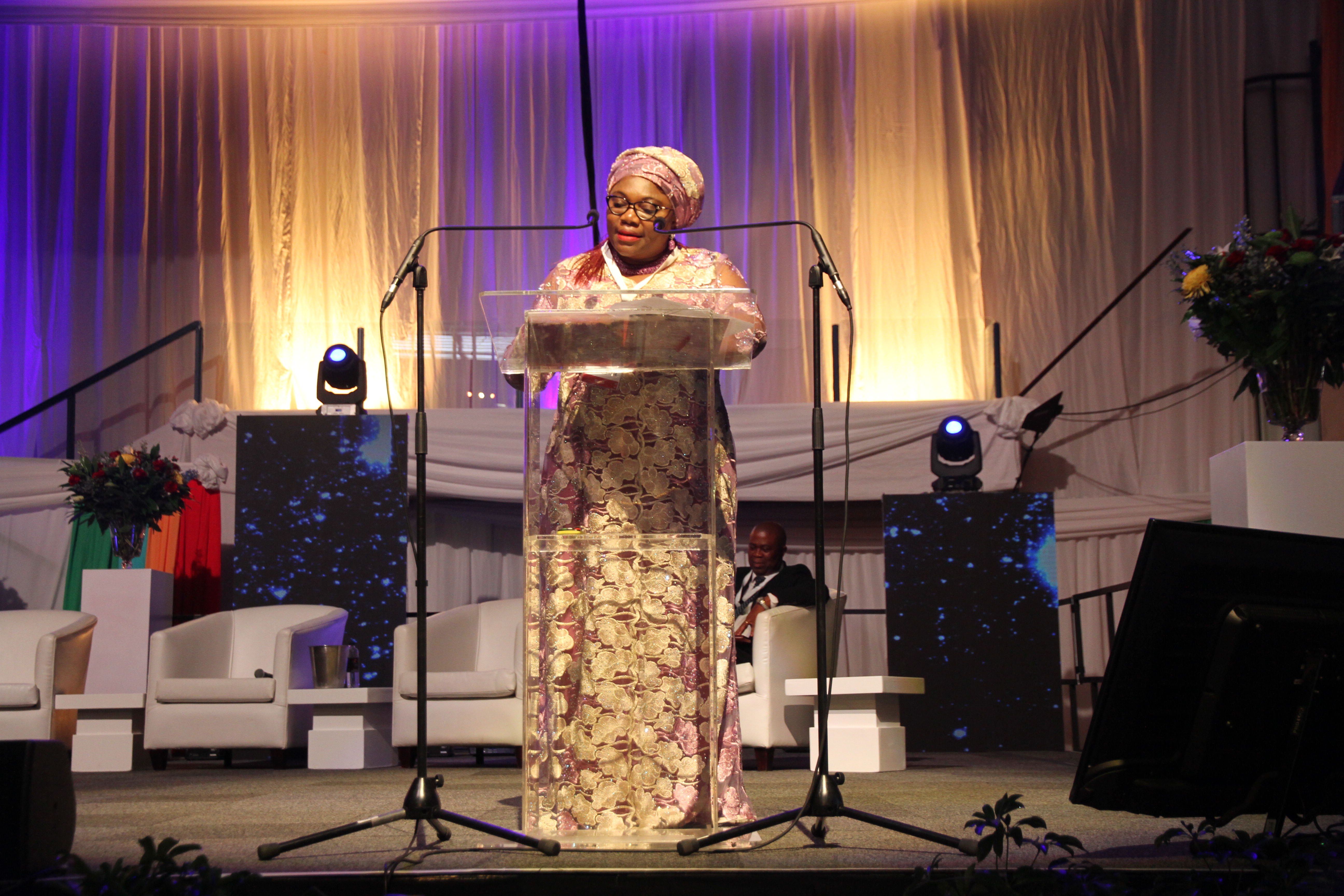
In his goodwill message at the opening ceremony of SFSA 2018, Prof Felix Dakora of the African Academy of Sciences (AAS) said his organisation was a Pan African nonprofit whose vision was seeing transformed lives on the African continent through Science, Technology and Innovation (STI).
“We have programs on food security, diseases, genomics and water and sanitation, we are building the capacity of Africa’s future scientists by offering them opportunities to study for masters and PhDs…In operationalizing the AU Agenda 2063, we need to consider free mobility of scientists within Africa to encourage intra-Africa research. African leaders should make it easy for researchers [scientists] to move around Africa with ease for joint collaborations to advance research on the continent,” counseled Dakora.
In another goodwill message, UNESCO’s Assistant Director General for Natural Sciences, Flavia Shlegel, thanked the South African government “for bringing science closer to society” adding that the UN’s 2030 Agenda, which she said had clearly defined the way forward when it comes to the role of STI in the global development agenda, was also aligned with Africa’s vision for growth as enshrined in the continent’s Agenda 2063: The Africa We Want.
“In accordance with the Universal Declaration of Human Rights, everyone should participate in the production and consumption of science… Africa is facing conflicts, socioeconomic challenges. However, young innovators across the continent are igniting conversations around energy…UNESCO attaches importance to data management and access to information and will be hosting a conference on Artificial Intelligence for African youths. Looking at the gaps in Africa’s STI policies; women need to be [more] involved in science; gender should be considered,” opined Shlegel.
She therefore urged Africa to explore science diplomacy as a possible solution to conflicts on the continent adding that investment in infrastructure should go hand-in-hand with investment in Science, Technology, Engineering and Mathematics (STEM) education.
“SFSA has grown into a global and regional science forum; South Africa will also be hosting the World Science Forum (WSF) in 2021 which will be taking place in Cape Town. Let’s continue the conversation about igniting science and ensure action so that no one is left behind,” she urged.

By successfully hosting the South Africa Science Forum in the last 4 consecutive years, South Africa had done an “impressive work” believes Vladimír Šucha, Director General of the European Commission’s Joint Research Centre (JRC).
“Why do we need this conversation?” asked Šucha “Because we are facing unprecedented challenges; environmental, climate change, migration, and demography but also populism, digital revolution and explosion of data. Approaches of the past won’t help; we need more political, societal innovations to tackle the challenges. But is science what it used to be? Isn’t science also facing challenges?
“Science must be democratized. Science must be open to the public; it must not be an elitist endeavor. Science must come out of its ivory towers and disciplinary silos to address societal challenges. It must harness the capacity of the people and also give back to society. We need to embark on knowledge management by making sense of knowledge. Otherwise, we will have all this information, but will be starving for wisdom,” he cautioned.
Daya Reddy, President of the newly formed International Council of Science (ISC), the world’s largest science NGO with a global membership of 40 international scientific unions and associations as well as over 140 national and regional scientific organizations, says the Council’s main goal was to “mobilize science for policy and action on issues of global public concern”.
“Science is confronting changing attitude – post-truth, fake news, elitism, digital revolution and lack of trust in science – which has changed the way knowledge is created and shared… It is important [for science] to advice policymaking with evidence-based solutions to challenges…The South Africa Science Forum is acquiring a global significance as a key platform for discussion and exchange of ideas among scientists, policymakers, and civil society to ignite conversation about innovative thinking,” observed Reddy
The opening ceremony of SFSA 2018 also saw the launch of African Union’s Calestous Juma Dialogue on Innovation and Emerging Technologies (CJEDIT), in memory of the US-based cerebral Kenyan scholar Calestous Juma (1953 – 2017) as part of efforts aimed at the realization of his lifelong dream of a vibrant platform for future generations of think-tanks, scientists, researchers, leaders and development practitioners to make Africa the cradle for Science, Technology and Innovation (STI).
Juma, an internationally recognized scholar in the application of science and technology to sustainable development, was at the time of his death, a Professor of the Practice of International Development and Faculty Chair of the Innovation for Economic Development Executive Program at Harvard Kennedy School. He was also the Director of the School’s Agricultural Innovation in Africa Project funded by the Bill and Melinda Gates Foundation.
The closing ceremony of the 2018 Forum also witnessed the launch of the progress report on the African Open Science Platform (AOSP) which is scheduled to be fully launched in 2020 as well as the presentation of awards to the winners of SFSA 2018 Exhibition and Science Diplomacy Prizes, intended to “recognise outstanding achievements in South Africa’s international STI cooperation as well as global contributions to harnessing STI for international peace, solidarity and sustainable development.”
On the other hand, AOSP is a pan-African initiative seeking to: “position African scientists at the cutting edge of data-intensive science, by stimulating interactivity and creating opportunity through the development of efficiencies of scale, the creation of critical mass through shared capacities, and amplifying impact through a commonality of purpose and voice.”
“Science for development has become the lens through which all of us are beginning to look at Science. Indeed, all the great scientific discoveries would be meaningless if they did not find expression in harmonising the coexistence of mankind and the environment. The African continent is faced with many challenges of which science can play a larger role in providing solutions,” Kubayi-Ngubane told guests and delegates at the closing of Forum.
Amongst numerous others, the 2018 South Africa Science Forum featured plenaries and high-level discussions on topics as varied as the Role of STI in the African Union’s Agenda 2063; Science Diplomacy’s Contribution to Africa’s Development; and the Relevance of Open Data Towards a Sustainable Environment. Others were Strategies for Adopting Emerging Technologies in Africa; the Role of Women in Science, Engineering and Technology; as well as the Role of Gender Equality in Advancing STI for Development.
Adam Alqali was one of 15 select African journalists who covered the 2018 South Africa Science Forum; courtesy of a travel grant from South Africa’s Department of Science and Technology (DST)











